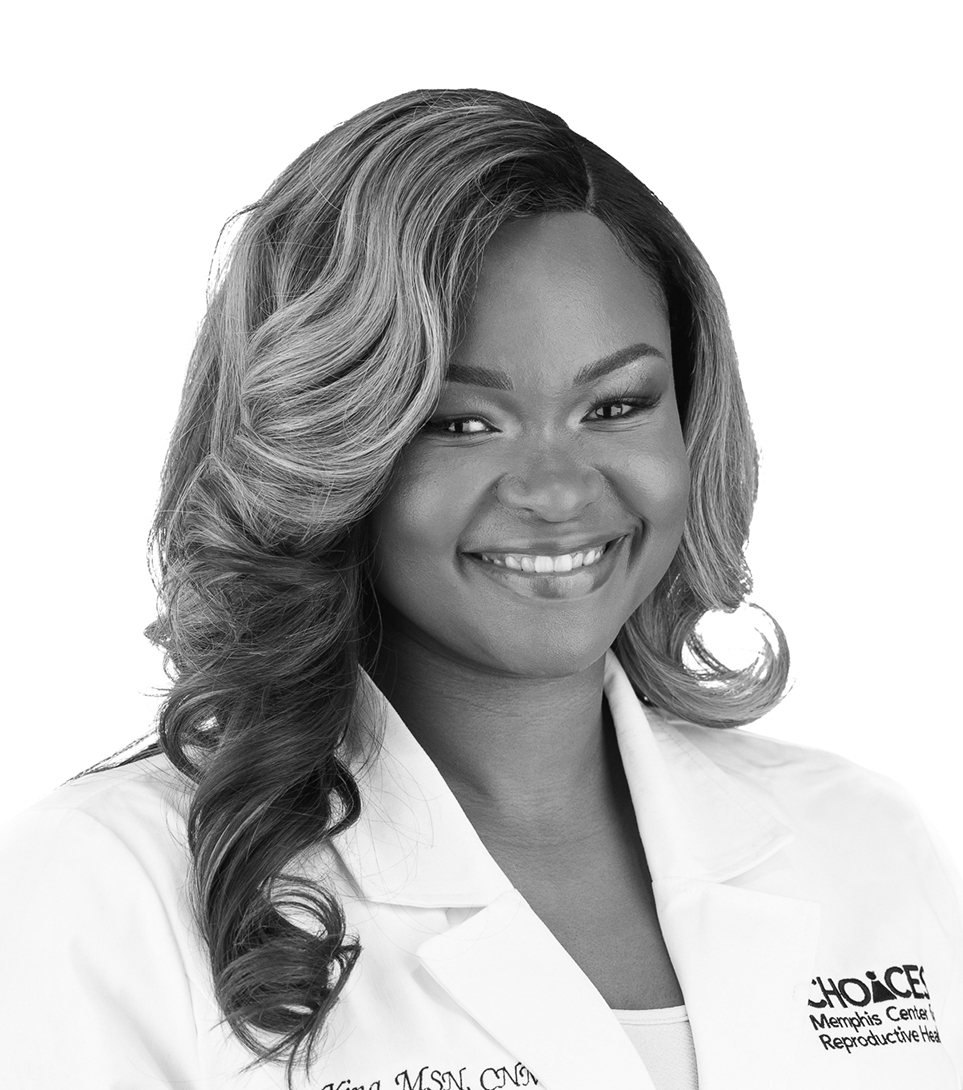by Kemetra King, CNM, APRN, MSN, RN (she/her) CHOICES: Memphis Center for Reproductive Health
What is menopause?
Menopause is defined as the time in life when the ovaries stop producing estrogen and progesterone and a person stops menstruating. It marks the permanent cessation of ovulation and menstruation.
How do I know if I have gone through menopause?
You can only know that you have gone through menopause after you have gone for at least 12 consecutive months without having a period.
One exception to this has to do with taking hormonal birth control. This type of medication will alter your monthly bleeding such that you may go through many months or years without bleeding but have not completed menopause.
When you stop these medications or have the contraceptive device removed, you should re-start bleeding within 3-6 months or sooner. If you don’t re-start bleeding within 12 months of stopping one of these hormonal methods, you should make an appointment to be evaluated with a healthcare provider.
What age does menopause usually occur?
On average, women’s final menstrual period is around 51 years of age but can occur between 45 and 55. If you have stopped having menses and you are under age 40, and you are not pregnant, have not had surgical removal of your ovaries or uterus, and are not on a hormonal contraceptive as discussed above, you should make an appointment to be evaluated with a health care provider.
What is perimenopause?
Perimenopause is the time around menopause during which your body is transitioning. The transition from producing eggs in your ovaries every month to no longer producing eggs does not happen overnight. Just like puberty, perimenopause happens over a period of 3-5 years for most people. During this time you may experience menopausal symptoms and menses may become irregular. This is the moment in time where some people will think they have gone through menopause therefore they can no longer get pregnant. This is a misconception, even though your periods are irregular or have skipped several months does not mean you are not ovulating; thus pregnancy can occur.
How do I know I am going through perimenopause?
Primary signs are:
• Irregular menses (periods) and eventual stopping of menses
• Menses can be lighter or heavier than normal. They can be shorter some months and longer other months
• Skipping monthly periods
Other signs:
• Possible weight gain
• Mood changes
• Unwanted hair growth or thinning and hair loss
• Visual changes
• Dental changes
• Dryness of the skin
• Decrease in elasticity of the skin
• Urinary changes such as not being able to hold urine for long periods of time
• Hot flashes
• Vaginal changes such as dryness, itching, burning, or irritation

How can I get through perimenopause and menopause in good health?
The keys to good health at any stage of life are to eat plenty of fruits and vegetables, maintain a healthy weight, exercise to maintain muscle strength and bone health, and stay connected with friends, family, partners, and your community.
Avoid triggers for hot flashes such as diary, hot drinks, spicy foods, alcohol and emotional upset. If you are a smoker, stop smoking. Increase mindfulness exercises such as yoga or meditation. If you need help or are struggling with symptoms, contact your healthcare provider.
Are there natural ways to treat my menopause symptoms?
Some women decide to treat their symptoms with herbs and dietary supplements instead of hormone replacement therapy. There are a number of natural options for the treatment of menopausal symptoms.
Black Cohosh to treat hot flashes, night sweats. Benefit: Black cohosh is derived from a species of buttercup. Studies have had mixed results on whether black cohosh is effective in reducing hot flashes. Some studies indicate it may help with mild hot flashes and night sweats for short-term treatment. May lower blood pressure, as well. In rare cases, hepatitis has been reported.
Evening Primrose Oil increases vagninal lubrication, treats anxiety, hair loss, insomnia and joint pain.
Soy to treat hot flashes, night sweats. Benefit: Soy has isoflavones, which are phytoestrogens (plant estrogens). Some studies have observed that soy may be effective in reducing menopausal symptoms. However, other studies have found no benefit. Only food forms of soy, like tofu and soy milk, are recommended. Soy in tablet or powder form is not advised.
Flaxseed, ground or oil to treat Hot Flashes. Benefit: Flaxseed has omega-3 fatty acids and lignans, which act as phytoestrogens. Results from studies have been mixed, but it may help symptoms in some women. It is also believed to help lower cholesterol. Avoid whole flaxseed because it is difficult to digest.
Vitamin E to treat vaginal dryness, hot flashes, Benefit: Topical vitamin E oil applied to the vagina helps improve lubrication and may also reduce hot flashes.
Yoga, Aerobic Exercise, Breathing Exercises to treat mood swings, sleep disruption. Benefit: Exercise and meditation reduce irritability, even hot flashes, in some women. Yoga combines both exercise and meditation into one activity. Exercise also helps most people sleep better.
Cold Drinks: to treat Hot Flashes, Night Sweats. Benefit: Cold drinks help you feel cooler. Avoid caffeine and alcohol, which are diuretics that encourage dehydration and can aggravate hot flashes. Try cold water or fruit juices with antioxidants and vitamins.
Warning: while the supplements mentioned above are among the most commonly used supplements to help control menopause symptoms, it’s important to note that research is still ongoing to determine their effectiveness. To date, no supplement has consistently been shown to work better than placebo in managing symptoms.
Also, keep in mind that dietary or herbal supplements may have side effects or interactions with each other or with other drugs. Some may be unsafe to take due to certain medical conditions. Consult with your doctor before using them.
Where can I get more information about menopause?
www.menopause.org is a good website.
CHOICES is a nonprofit reproductive and sexual health center providing a range of services, including menopause management.
Our care is inclusive of everyone. Call 901-274-3550 or visit www.memphischoices.org.



